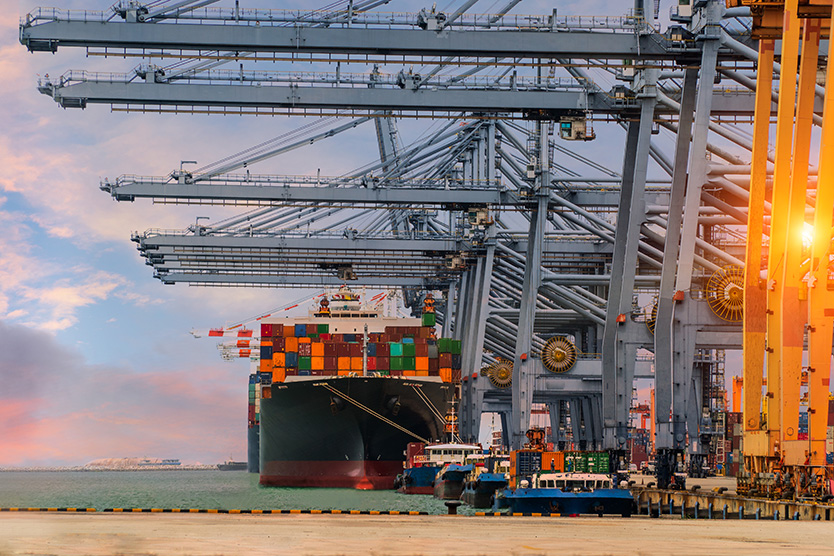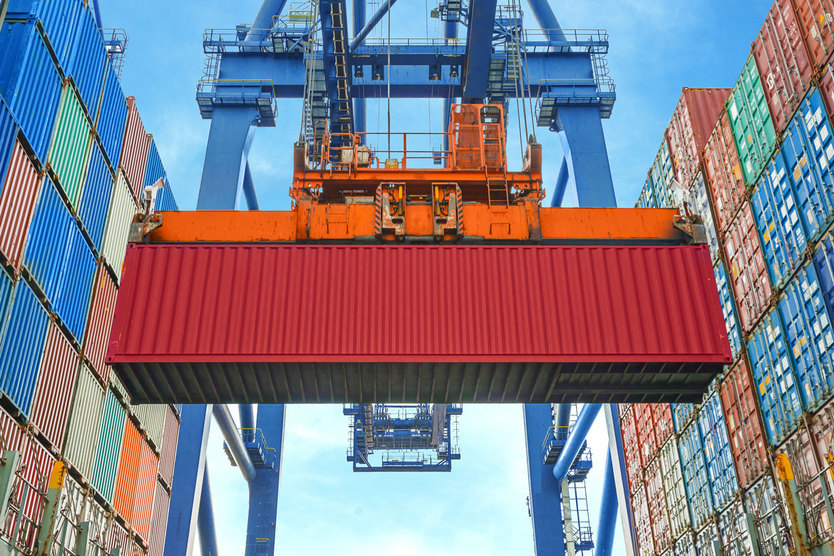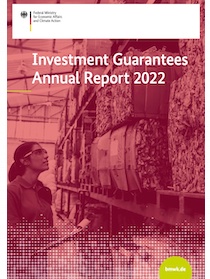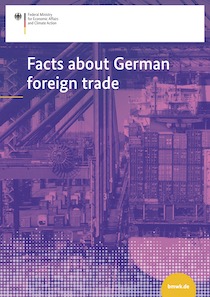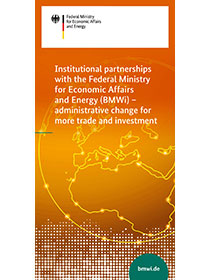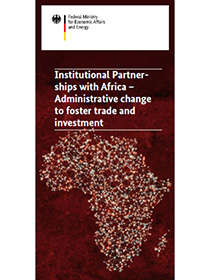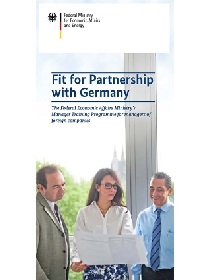Joint economic bodies and cooperation councils
Important instruments of bilateral economic relations include the joint economic commissions and cooperation councils (document in German), and the working groups on commerce and energy of the binational commissions agreed on by the governments of the partner countries. In this context, “joint” signifies that representatives both of the governments and of the business community (business associations, companies) participate in the regular events. The bodies work to promote trade in goods between the economic partners, to intensify mutual investment relations, and to boost technology transfer.
Africa Business Network
The Africa Business Network works to network established players and programmes in the areas of foreign trade promotion and development cooperation. It also provides German companies with a comprehensive range of information, advice and support as they plan their route onto the African market. The Africa Business Guide (website in German) published by GTAI sets out detailed information on business conditions in African markets, promising sectors as well as listing contact partners in Germany and on the ground. The office of the Africa Business Network leads companies to undertake an initial consultation on foreign trade promotion with the IHK Network Office Africa at DIHK Service GmbH or on development cooperation with the Agency for Economic Affairs and Development. It has a number of ‘Africa Partners’ on hand to answer companies’ questions throughout the market entry process. The office also offers new foreign trade promotion measures for market entry in Africa.
Business councils and business forums
In addition to the joint economic commissions and cooperation councils agreed between the governments, there are also many bodies organised independently by the business community. Many of these take the form of business councils or business forums (cf. Federation of German Industries).
High-level government consultancy provided by the German Economic Team on behalf of the Federal Ministry for Economic Affairs and Climate Action
The Federal Ministry for Economic Affairs and Climate Action finances high-level government consultancy for Ukraine, Moldova, Belarus, Georgia, and Uzbekistan. The main objective is to provide continuous support and guidance on economic reform processes. The team of consultants works closely with national research institutes and international organisations on a demand-driven basis, analysing current economic policy problems and developing specific recommendations for action for high-ranking decision-makers in these countries. The focus of the consultancy is on macro-economic analysis and other issues including fiscal, monetary, and exchange-rate policy, debt management, trade and integration policy, development prospects, and on ways to attract foreign direct investment and improve the investment climate. Advice on regulation and privatisation work is also provided. Implementation of the consultants’ recommendations for action also benefits German businesses on the ground.
Bilateral administrative partnerships
In many countries, outdated administrative structures, excessive bureaucracy and non-transparent decision-making processes create market barriers that are difficult to overcome. Often, governments lack the necessary expertise to address this situation. In order to help with this problem, the Federal Ministry for Economic Affairs and Climate Action has set up bilateral administrative partnerships. Under this instrument, it works together with the business community to identify structural challenges and offers German administrative expertise to partner governments. Deploying German civil servants can help modernise and reform foreign administrations and, in the medium term, improve the business environment for both local companies and German firms on the ground.
The administrative partnerships are essentially based on the EU instrument of Twinning (article in German), via which the Federal Ministry for Economic Affairs and Climate Action is also involved in many partner countries. They are led by administrative experts who draw upon upon twenty years of networking experience and can offer a high level of technical and project expertise.
More information (PDF, 1 MB)
